Abstract
The incorporation of 32P and 14C into organic compounds by Ankistrodesmus is strongly inhibited by X-rays. In the same phosphorylated compounds 32P-incorporation apparently is more severely inhibited by X-rays than the 14C-labelling. The 32P-incorporation into organic compounds is more strongly inhibited than 32P-labelling of inorganic phosphate in the cell. The inhibition of 32P-incorporation into a number of compounds is strikingly uniform. It is concluded that the inhibition of 32P-incorporation and of 14C-incorporation into phosphorylated compounds in vivo is due to an uncoupling by X-rays of photophosphorylation as in vitro. The difference in X-ray sensitivity of 14C- and 32P-incorporation into one organic phosphorous compound is attributed to a dual action of X-rays on 32P-incorporation in organic compounds (both via the uncoupling of photophosphorylation) and only a single effect on 14C-incorporation and 32P-labelling of inorganic phosphate. The effect of X-rays on 14C-incorporation into organic compounds included inhibition in most cases but also stimulation as in the case of glycolic acid. These differences may be due to interference in the intercellular regulations following the application of X-rays. The inhibition of 14C-incorporation in many cases exhibits different behaviour at low (<200 krad) and high doses. These changes are discussed on the assumption that at the lower doses X-rays cause uncoupling of photophosphorylation and at the higher doses an additional inhibition of electron transport.
Full text
PDF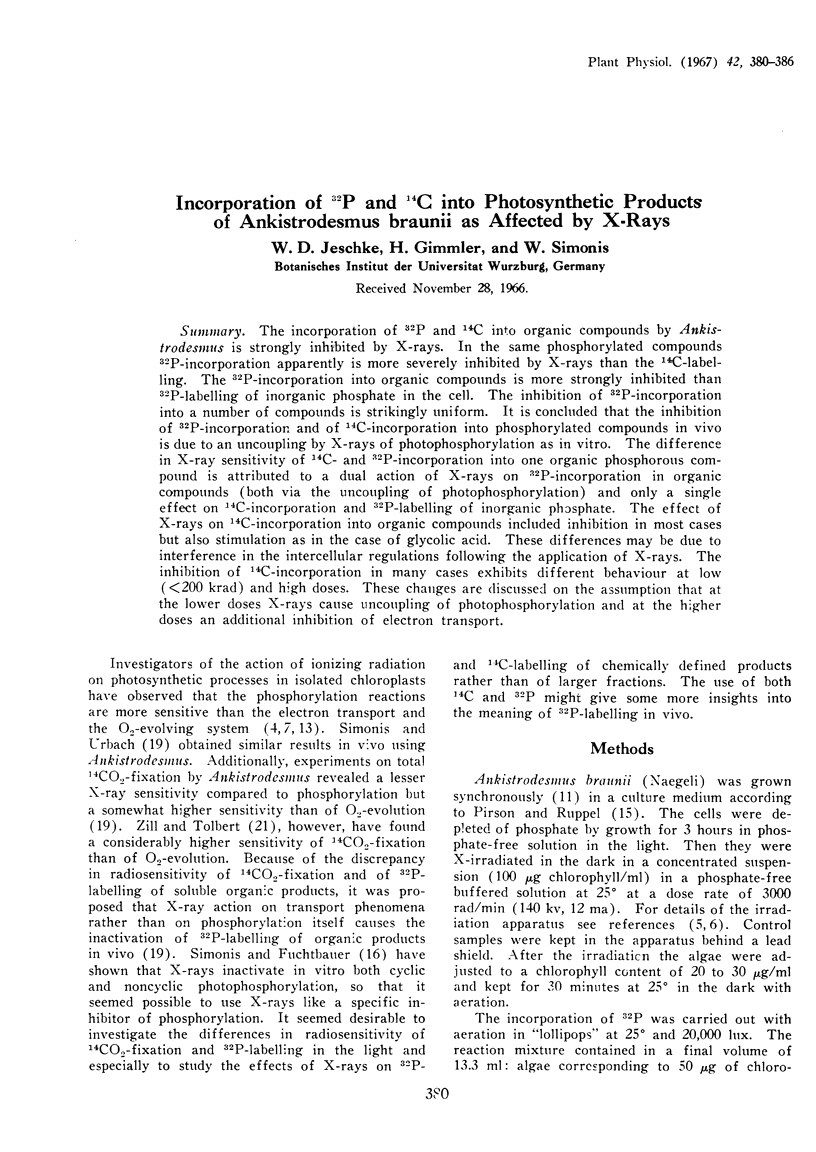
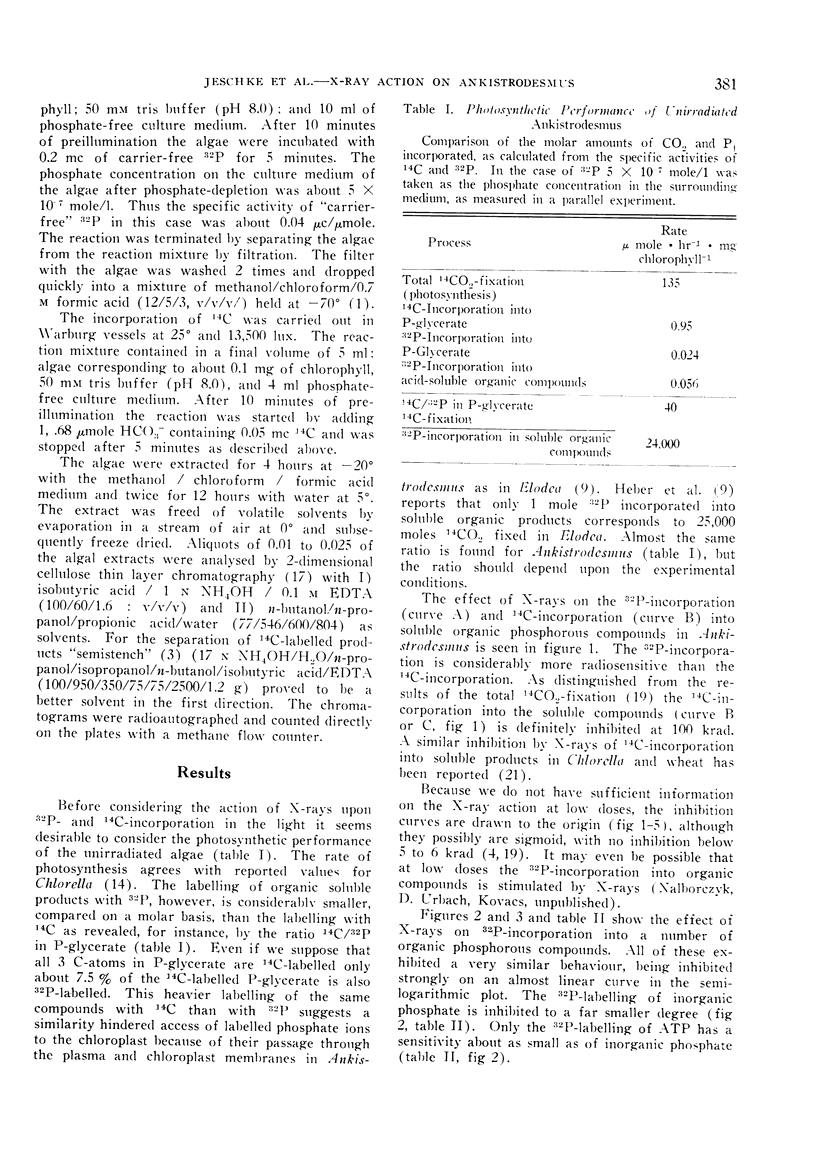
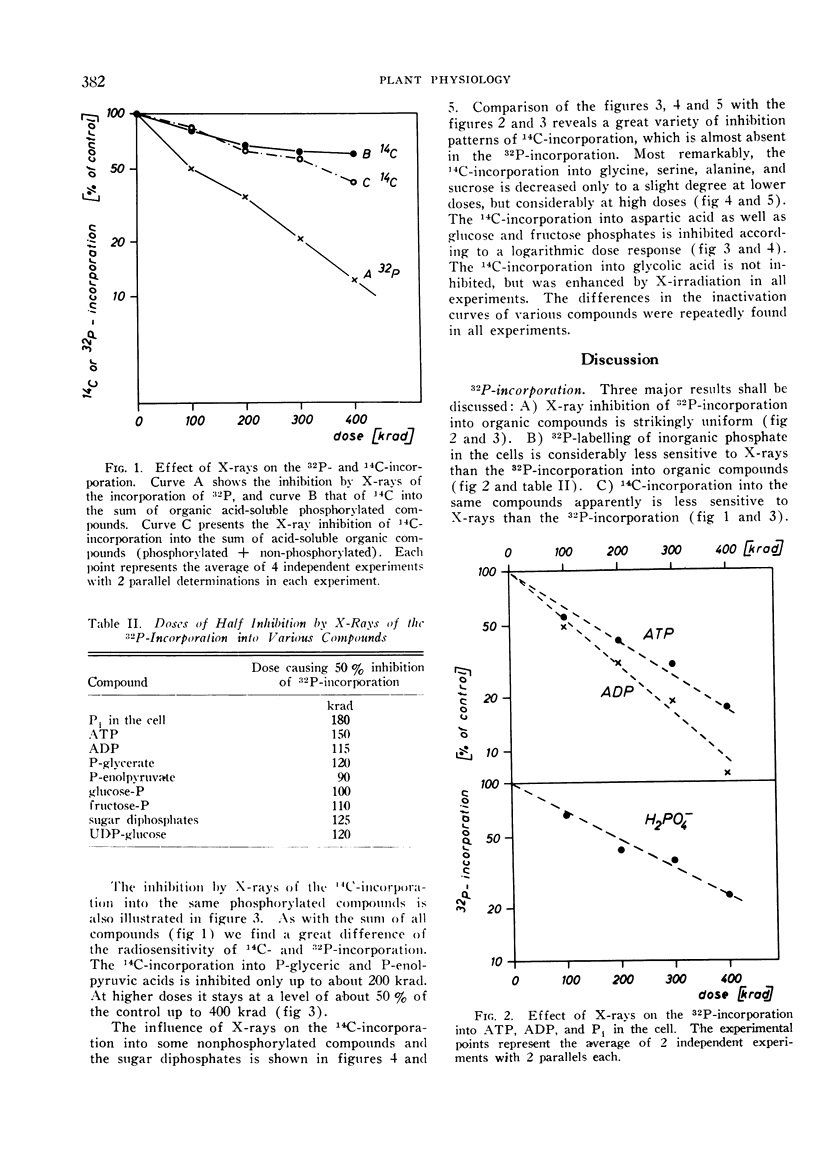
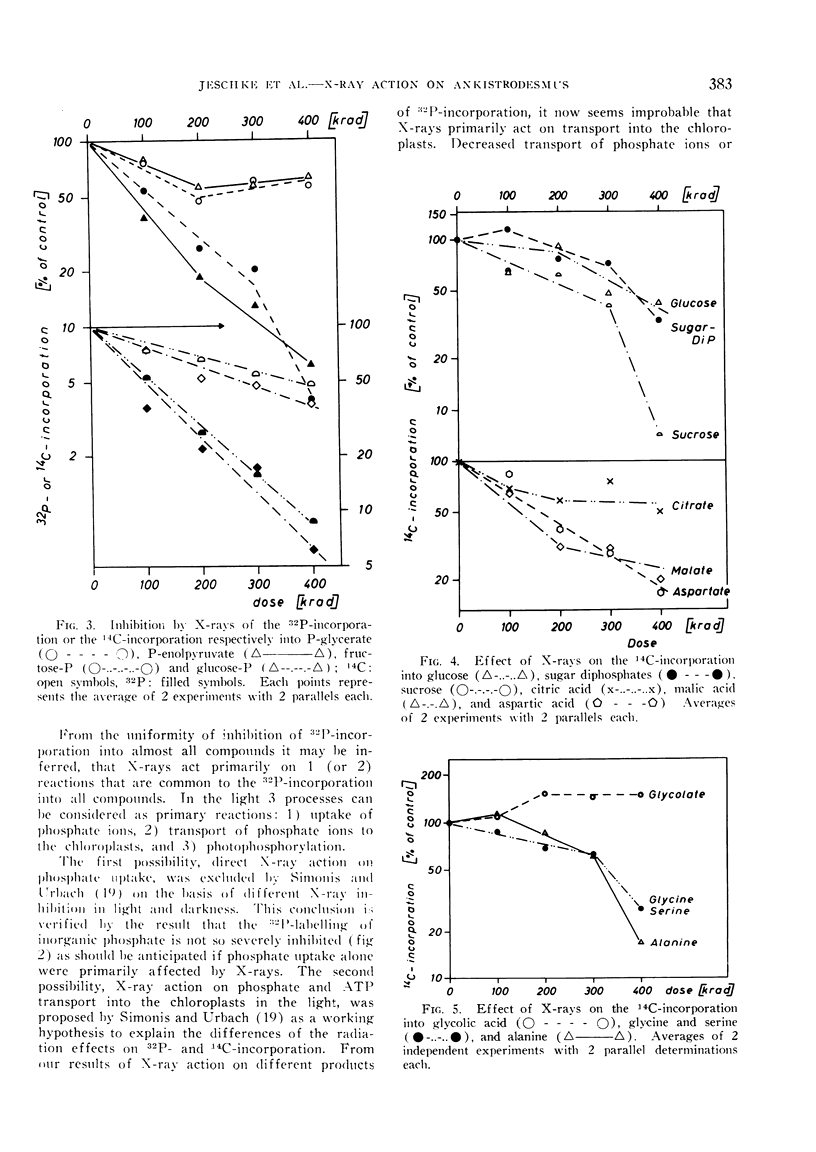
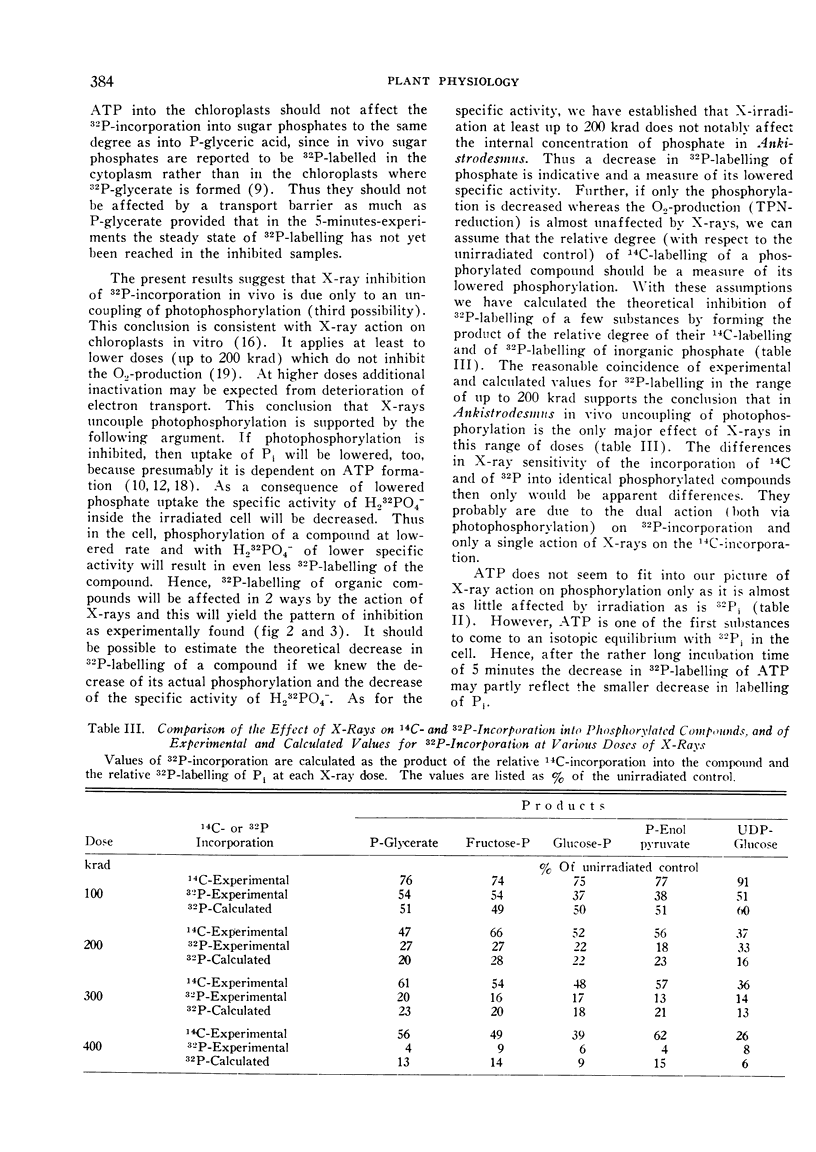
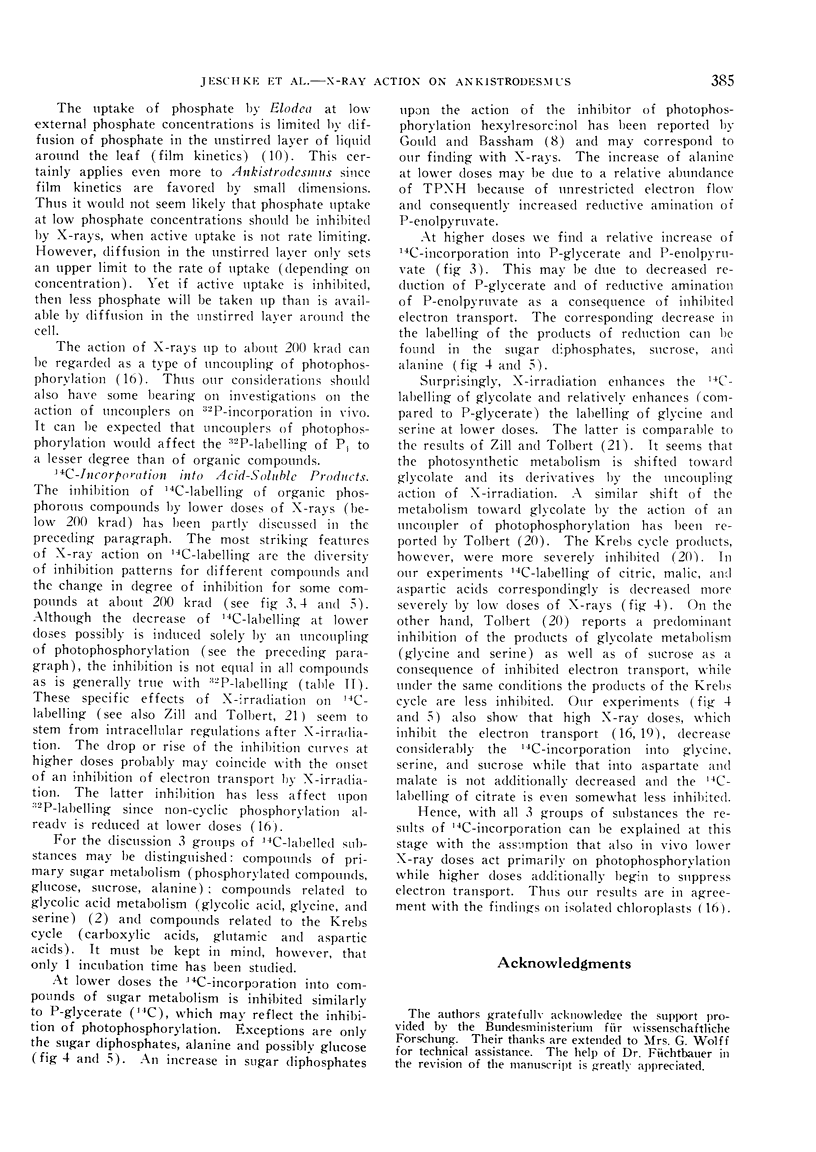
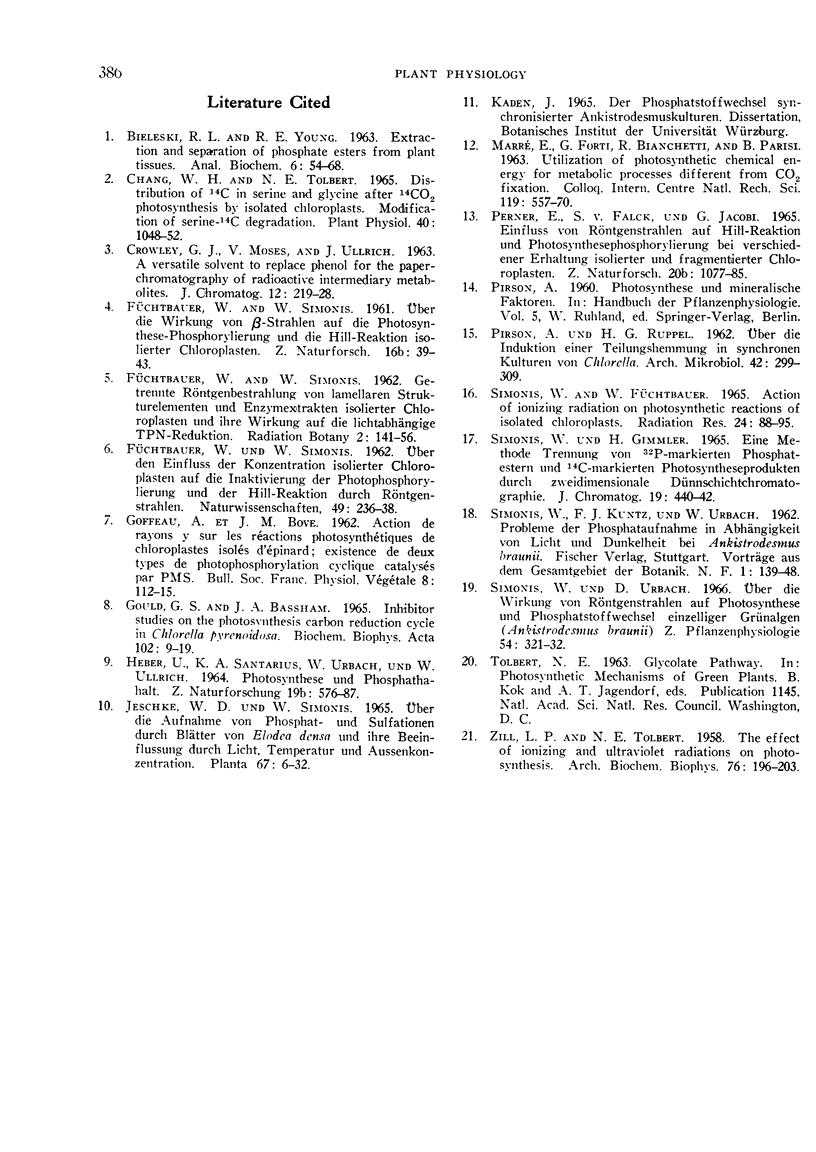
Selected References
These references are in PubMed. This may not be the complete list of references from this article.
- CROWLEY G. J., MOSES V., ULLRICH J. A VERSATILE SOLVENT TO REPLACE PHENOL FOR THE PAPER CHROMATOGRAPHY OF RADIOACTIVE INTERMEDIARY METABOLITES. J Chromatogr. 1963 Oct;12:219–228. doi: 10.1016/s0021-9673(01)83673-6. [DOI] [PubMed] [Google Scholar]
- Chang W. H., Tolbert N. E. Distribution of C in Serine and Glycine after CO(2) Photosynthesis by Isolated Chloroplasts. Modification of Serine-C Degradation. Plant Physiol. 1965 Nov;40(6):1048–1052. doi: 10.1104/pp.40.6.1048. [DOI] [PMC free article] [PubMed] [Google Scholar]
- Gould E. S., Bassham J. A. Inhibitor studies on the photosynthetic carbon reduction cycle in Chlorella pyrenoidosa. Biochim Biophys Acta. 1965 May 25;102(1):9–19. doi: 10.1016/0926-6585(65)90199-8. [DOI] [PubMed] [Google Scholar]
- SIMONIS W., FUECHTBAUER W. ACTION OF IONIZING RADIATION OF PHOTOSYNTHETIC REACTIONS OF ISOLATED CHLOROPLASTS. Radiat Res. 1965 Jan;24:88–95. [PubMed] [Google Scholar]
- Simonis W., Gimmler H. Eine Methode zur Trennung von 32P-markierten Phosphatestern und 14C-markierten Photosynthesprodukten durch zweidimsnsionale Dünnschichtchromatographie. J Chromatogr. 1965 Aug;19(2):440–442. doi: 10.1016/s0021-9673(01)99478-6. [DOI] [PubMed] [Google Scholar]
- ZILL L. P., TOLBERT N. E. The effect of ionizing and ultraviolet radiations on photosynthesis. Arch Biochem Biophys. 1958 Jul;76(1):196–203. doi: 10.1016/0003-9861(58)90134-6. [DOI] [PubMed] [Google Scholar]


